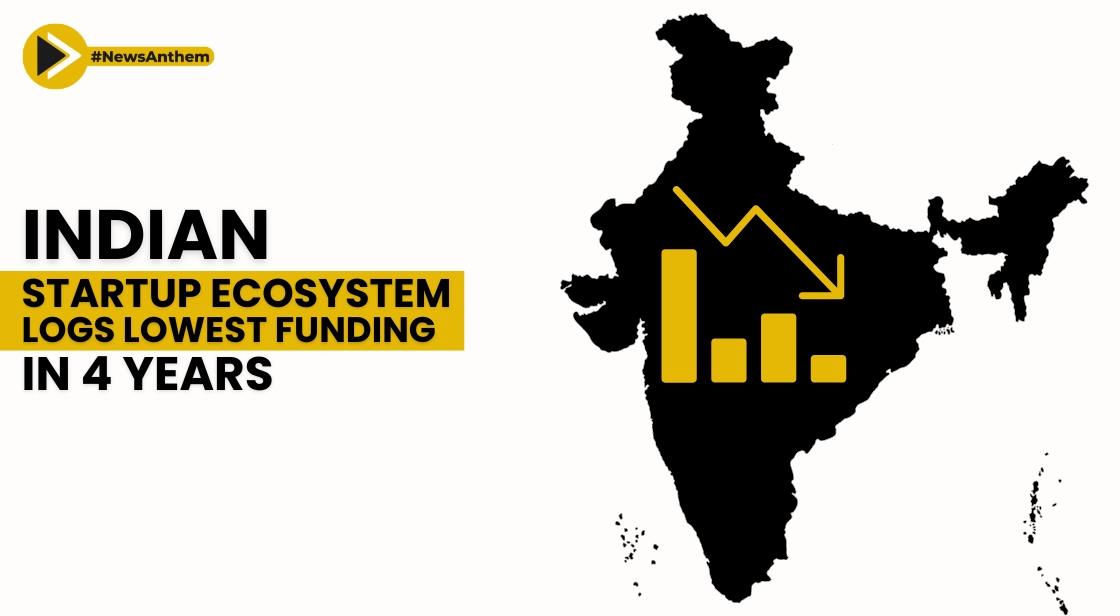Indian Startup Ecosystem Records Lowest Funding in Four Years

News Synopsis
Indian Startup Ecosystem Faces Lowest Funding in Four Years
The Indian startup ecosystem experienced a notable decline in funding during the first half of this year, marking its lowest point in the past four years. A report revealed that funding in this period amounted to $3.8 billion across 298 deals, representing a decline of approximately 36% compared to the second half of 2022, which witnessed $5.9 billion in funding.
Fintech, SaaS, and D2C Lead in Funding
According to the PwC India report, sectors such as fintech, Software-as-a-Service (SaaS), and direct-to-consumer (D2C) continued to attract significant funding and emerged as the most funded sectors within the Indian startup ecosystem.
Growth and Late-Stage Deals Dominate Investment Activity
The report further highlighted that growth-stage and late-stage funding deals accounted for 84% of the funding activity in the first half of the year. While these deals represented only 43% of the total deal count, they accounted for a substantial portion of the total funding.
Average Ticket Sizes for Growth and Late-Stage Deals
In terms of average ticket sizes, growth-stage deals recorded an average of $19 million, while late-stage deals reached an average of $52 million during the first half of the year, as stated in the report.
Potential for Increased Investments in the Coming Months
Despite the decline in funding, there remains optimism within the Indian startup ecosystem. Amit Nawka, Partner, Deals & India Startups Leader at PwC India, stated that venture capitalists hold significant untapped capital reserves, indicating the potential for increased investments in the near future.
Nawka also mentioned that investors are conducting more thorough due diligence before making investments, both in terms of detailing and coverage.
Early-Stage Funding and Regional Funding Activity
Early-stage deals accounted for 57% of the total funding in the first half of the year in terms of volume, while in value terms, they contributed approximately 16% of the total funding. However, early-stage deals were reported to be at their lowest compared to the previous two years.
Bengaluru, Delhi-NCR, and Mumbai continued to be the primary hubs for startup activity, representing around 83% of the total funding activity within the Indian startup ecosystem.
Conclusion
The Indian startup ecosystem has faced a significant decline in funding during the first half of this year, reaching its lowest point in the past four years. Despite this downturn, sectors such as fintech, SaaS, and D2C have continued to attract substantial funding.
Growth-stage and late-stage deals have dominated the investment landscape, representing the majority of funding activity. While early-stage deals accounted for a significant portion of funding in volume terms, their value contribution was at its lowest compared to previous years.
Although there has been a slowdown in startup funding, there is optimism within the industry. Venture capitalists hold untapped capital reserves, providing potential for increased investments in the coming months.
However, investors are now conducting more rigorous due diligence before making investment decisions, ensuring a thorough assessment of potential opportunities.
Bengaluru, Delhi-NCR, and Mumbai remain the key cities for startup activity, capturing the majority of funding activity. Despite the challenges faced, the Indian startup ecosystem continues to show resilience and adaptability, with sectors like fintech, SaaS, and D2C leading the way.
Moving forward, stakeholders in the Indian startup ecosystem are hopeful for a revival in funding and a resurgence in investment activity. The industry will closely monitor the trends and dynamics to capitalize on opportunities, innovate, and navigate the evolving landscape.









